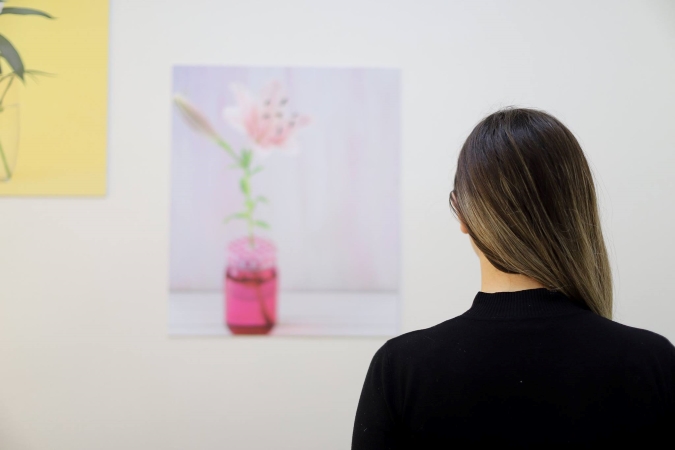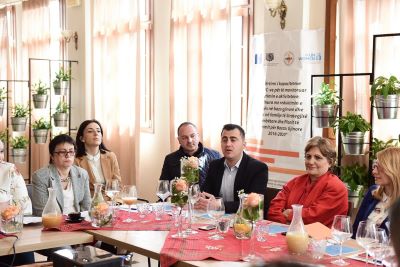Emergency shelters and specialized services needed for women survivors of violence in Albania
Date:

What are the main challenges and gaps faced by Albanian municipalities in efficiently addressing cases of domestic and gender-based violence? Since 2017, the Gender Alliance for Development Centre (GADC) and Albanian Women Empowerment Network (AWEN) have been working to identify these challenges. They are leading a civil society monitoring process of one of the four objectives of the Albanian National Strategy and Action Plan for Gender Equality 2016 – 2020, which is about reducing gender-based and domestic violence.
GADC and AWEN collaborate with local NGOs, which they train in advance and are now engaged in conducting the monitoring exercise for 2017, 2018 and 2019 in 5 out of 61 municipalities in Albania (Tirana, Durres, Shkoder, Elbasan, Korce and Vlore).
The findings of 2017 and 2018 reveal that in almost all selected municipalities, there is a lack of emergency shelters to provide immediate services to women who have suffered violence and whose cases have been reported to the referral mechanism. This makes the process of treating such cases often difficult. In addition, there is a need to increase the capacities of the judges, especially in enhancing their collaboration with the local coordinators of domestic violence.
This constitutes one of the six projects currently being implemented in Albania by UN Women with the support of the European Union. The project is part of the regional programme on Ending Violence against Women in the Western Balkans and Turkey.
Multiple other challenges have been identified in the operation and coordination activities of the referral mechanisms in the six major municipalities of the country, thus affecting the management of cases of violence against women. Some of the challenges include the lack of follow up of cases where girls or women are killed by a husband or partner and the problem of determining why the system failed. Also, there are minimal reports of cases of violence by health personnel, who shy away from considering such abuses as their responsibility, even though health institutions are legally obliged to report them. Furthermore, domestic violence perpetrators are completely left out of the system, and there are no services offered by municipalities for their rehabilitation.
Mirela Arqimandriti, Executive Director of GADC and team leader of the project, stressed the lack of sustainable public funds, at the local level, to invest in preventing and covering the expenses of services to survivors of domestic violence. “The municipalities have insufficient budget for awareness-raising activities about domestic violence. Currently, all monitored municipalities rely to a great extent on services and assistance offered by civil society organizations supported by international donors, which on the other hand, are not inclined to provide funds for services.”, says Mirela.
The findings of the monitoring reports are used as an advocacy tool by CSOs to increase government accountability at both central and local levels, particularly in their obligations of ensuring gender equality and ending violence against women.
Consequently, the findings have led to an increase in public information materials and awareness to prevent domestic violence. Also, municipalities are regularly introducing new domestic violence data in their national online system. At the same time, the technical working groups responsible for the management of cases of domestic violence have been meeting more regularly in the municipalities, which are under monitoring.

“A challenge in the functioning of the referral mechanism across the board is weak coordination and poor information sharing among all participating institutions. We hope constant monitoring will increase accountability and willingness from State actors to ensure effective implementation of the National Strategy for Gender Equality”, says Ines Leskaj, Executive Director of AWEN.
The meetings of the referral mechanisms in the six municipalities are closely monitored and analysed by local CSOs, which are involved in the initiative. Together with the data collected regularly, they will serve as evidence-based findings and shared with local institutions responsible for protecting survivors of gender-based violence.
“Challenges to combat gender-based violence are numerous, but working day after day, all of us have proven that nothing is impossible. We all have the goodwill, but it is necessary for us to be supported in services and staff so that we can say with conviction: "Yes, we will," says Elizeta Vando Bita, Gender and Equality employee, Coordinator of the referral mechanism in Korca Municipality.
The findings help inform the Albanian CSO shadow reports to CEDAW and GREVIO and will be used as tools for advocating timely and proactive responses to gender-based violence in Albania. The recommendations and findings will also serve as a useful advocacy tool for all the organizations involved at the local level, especially for municipalities requiring appropriate implementation of local and central strategies for preventing domestic violence, gender-based violence and achieving gender equality.